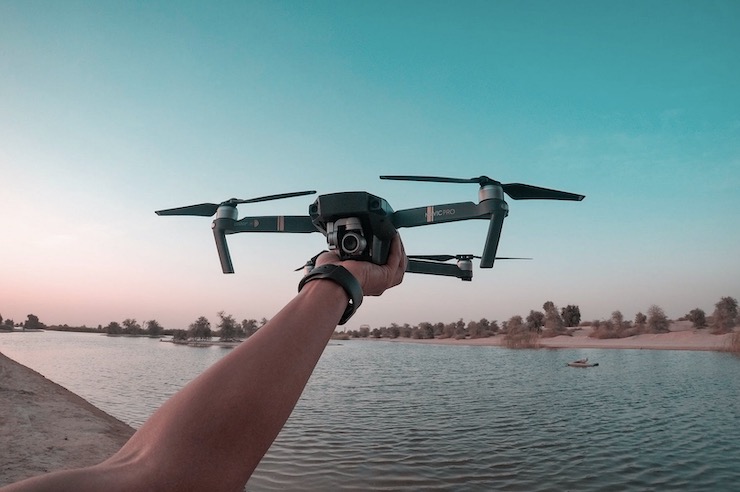
Recently-released data on U.S. drone industry investment trends reveals a striking anomaly. While the number of remote aerial deliveries of food and store goods has largely stalled – due to weak consumer demand and persistent regulatory constraints — investment in this sector, a clear sign of business confidence – is still growing substantially.
In fact, investment is growing faster in retail than in any other drone sector, including construction and real estate, according to the financial website CrunchBase. The question is why.
In a recent report, Crunchbase found that drone providers seeking to replace existing road vehicle delivery systems (including cars, motorcycles and bike couriers) took in nearly as much investment in the first half of this year ($1.5 billion) as all of 2022 ($1.6 billion).
That finding is striking in light of the ongoing problems that major US retailers like Amazon and Walmart have encountered getting their retail delivery operations off the ground.
Amazon, which has struggled with safety and technical feasibility issues almost from the beginning, has made at most several hundred retail deliveries to date at its two main pilot sites – College Station, TX and Lockeford, CA.
Walmart, which relies heavily on its UAV partner Drone Up. has fared somewhat better but still has fewer than 10,000 deliveries to show for an entire year’s worth of activity at 36 of its store outlets in seven US states, including Virginia, North Carolina, Arizona and Arkansas, the site of its corporate headquarters.
Despite their disappointing showing, the two companies continue to plod on and investors seem ready to wait for further adjustments to their operations that might satisfy the FAA’s stringent safety technical performance standards, allowing them to speed their deliveries and attract greater consumer interest in their service.
It could also be that some of the most high-performing drone delivery firms, especially those involved in the medical sectors, are offsetting the suboptimal performance by the largest U.S. retailers – boosting investor confidence in this sector overall.
A good example is San Francisco-based Zipline which is currently assisting Walmart at a handful of its store hubs. The firm is a global leader in the delivery of emergency medical supplies via drones but has recently announced plans to assist local retailers and restaurant chains with their food and store supplies.
The 7-year old firm topped CrunchBase’s ranking of “drone and drone delivery related companies” with investments of $813 million in the first half of 2023 – slightly more than half the investment total reported in this sector for this period.
Other firms listed in the CrunchBase top 10 include Wingcopter ($66.2 million), UK’s Skyports ($32 million), Ireland’s Manna ($30 million), Drone Delivery Canada ($13.6 million), and MightFly ($5.1 million).
A number of these firms have also announced plans for a major expansion of their retail delivery operations in the US in 2023 and beyond. Manna, for example, which is highly-regarded in Europe, is establishing a major delivery hub in the Dallas-Ft. Worth area. The company has established a strong partnership with Coca-Cola’s bottling subsidiary, which previously contributed $40 million to help Manna establish its US base.
Manna is also awaiting FAA approval for BVLOS operations and a number of European investors are standing by to fuel the company’s further US expansion. The same is true of Germany’s Wingcopter, which has extensive European operations in the health sector and recently formed a partnership with Spright, a subsidiary of Air Methods, to deliver medical supplies across the US.
2023 promises to be a banner year for the UAV retail sector. If current investment trends hold, 2024 could prove to be even bigger, as more European players with established track records get set up in the US, secure FAA approval, and forge major partnership deals, boosting investor confidence in the sector’s future.
Whether Amazon and Walmart can remain on the cutting edge of this trend – or in fact, succumb to competitive pressures — remains to be seen. Polls continue to show that retail deliveries remain the least popular drone niche with the public at large, largely because of their association with these retailers, which have yet to establish a secure foundation for moving their operations forward.
|